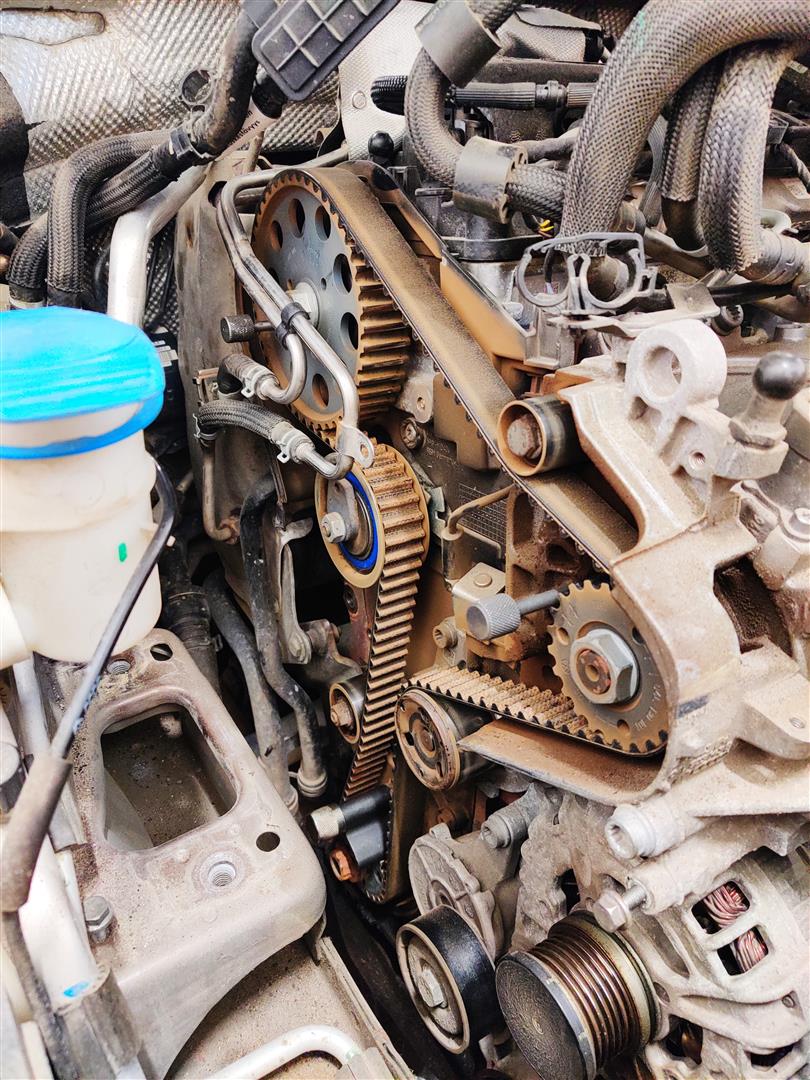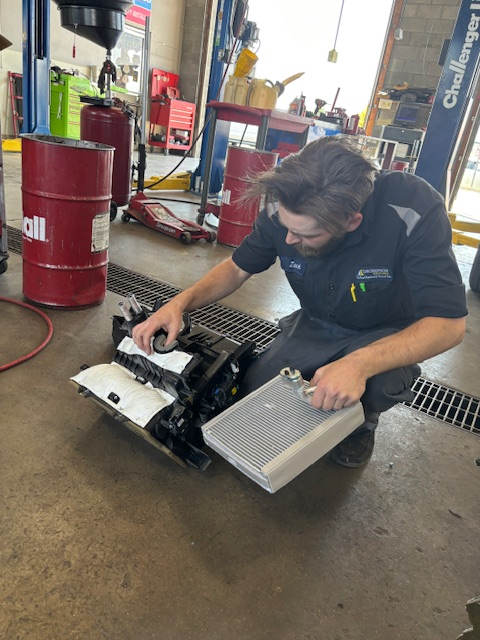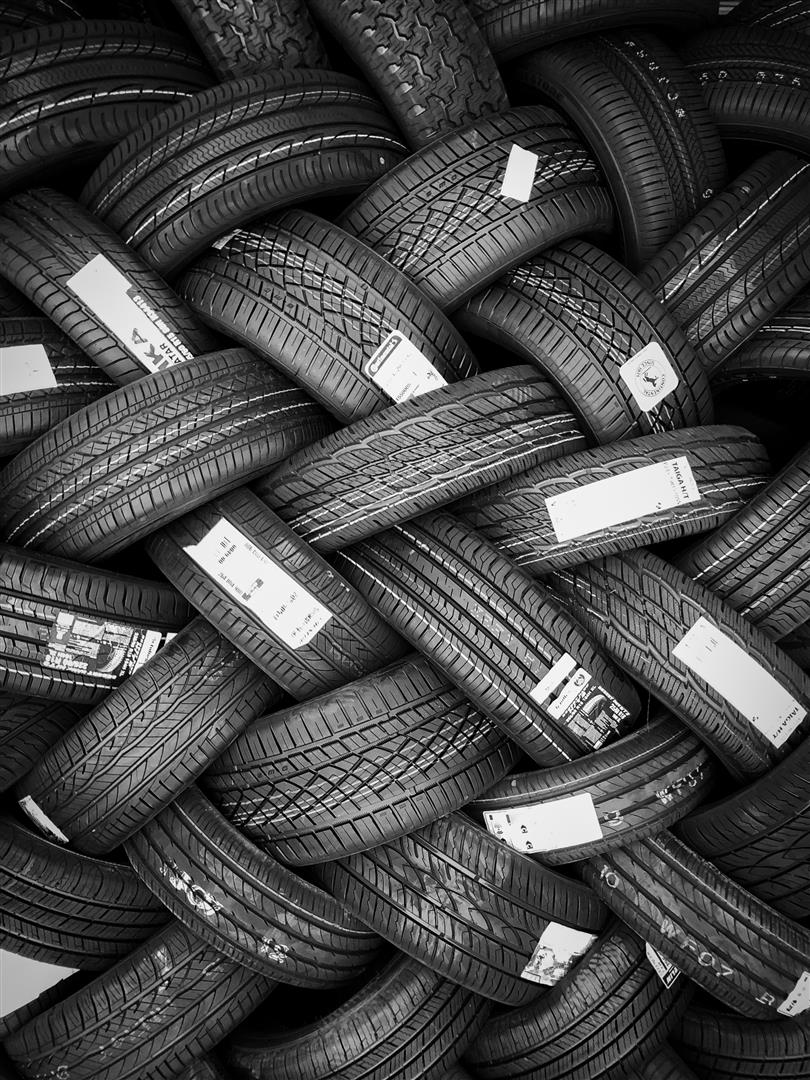Posted on 1/21/2025
.png)
🚗 Exciting Changes for Utah License Plates & Registration Stickers in 2025! 🎉 As we roll into 2025, you may notice some updates to Utah’s license plates and registration stickers: ✅ New Combined Sticker: When it’s time to renew your vehicle’s registration, you’ll receive a single sticker combining the month and year. This replaces the old separate stickers. Simply remove the old ones and place the new sticker on the upper right-hand corner of your plate. Heads up: we’ve found the old stickers can be a bit tricky to remove! ✅ One Plate Requirement: Utah now requires only a rear license plate, so newly registered vehicles will be issued just one plate. If your rear plate is faded or difficult to clean off, consider swapping it with your front plate. ✅ New Plate Design: Utah is transitioning to flat, screen-printed plates instead of the traditional raised embossed ones. For first-ti ... read more
Posted on 1/14/2025

The timing belt is one of the most critical components in your Honda Odyssey’s engine. It synchronizes the rotation of the crankshaft and camshaft, ensuring the engine’s valves open and close at the right time. Over time, the timing belt can wear out or degrade, and if it fails, it can lead to severe engine damage. Here’s everything you need to know about replacing the timing belt in your Honda Odyssey. When Should You Replace the Timing Belt? Honda recommends replacing the timing belt in most Odyssey models every 60,000 to 100,000 miles, depending on the year and driving conditions. Check your owner’s manual for the specific maintenance schedule for your vehicle. Additionally, replace the timing belt sooner if: You notice cracking, fraying, or glazing on the belt. Most cases the timing belt is not visible with out removing the timing cover. You hear a ticking noise coming from the engine. Coolant leaking from the water pump ... read more
Posted on 1/8/2025

What Are the Signs of a Leaking Heater Core? A leaking heater core can cause a variety of problems in your vehicle, and recognizing the warning signs early can save you from costly repairs. This critical component of your car’s heating and cooling system is essential for maintaining comfort in colder months and ensuring the proper functioning of your vehicle. Here are some key indicators that your heater core might be leaking: Signs of a Leaking Heater CoreFogged-Up Windows When Starting the Vehicle If your windows fog up shortly after starting your car, especially when the heater is on, it could be a sign of coolant vapor leaking from the heater core into the cabin. Coolant on the Floorboards Puddles or a damp feeling on the passenger-side floorboards often indicate a leaking heater core. Coolant has a sweet smell, so if you notice an unusual odor in your car, check for wet spots under the dash. ... read more
Posted on 12/31/2024

Choosing the right auto repair shop is a critical decision for every vehicle owner. Whether it’s a routine oil change or a major repair, drivers want to ensure their car is in trusted hands. So, what makes an auto repair shop stand out? Here are the top features customers commonly look for when selecting an auto repair service: 1. Trustworthiness When it comes to auto repair, trust is everything. Customers value shops that provide honest diagnostics and transparent pricing. They want to feel confident that they’re not being sold unnecessary repairs or overcharged for services. Building a reputation for integrity and straightforward communication is key to earning customer loyalty. Here at Dickerson Automotive, we’ve spent 25 years building and maintaining the trust of our valued customers.2. Qualified Technicians The expertise and certifications of the mechanics can make or break an auto repair shop’s reput ... read more
Posted on 12/26/2024

Tires are the unsung heroes of your vehicle. They provide traction, ensure smooth handling, and play a critical role in your overall safety. However, like all components, they wear out over time and need replacement. Knowing when to replace your tires is essential for keeping your car safe and performing at its best. Key Signs You Need New TiresTread Depth: The tread on your tires provides the grip necessary for safe driving. Over time, this tread wears down. Use the "penny test" to check your tread depth: Insert a penny into the tread with Lincoln’s head facing downward. If you can see all of Lincoln’s head, it’s time for new tires. Ideally, replace them when tread depth falls below 2/32 of an inch. Cracks and Bulges: Tires exposed to extreme weather or simply aging can develop cracks in the sidewall or bulges. These are signs that the tire structure is compromised, which can lead to blowouts. ... read more